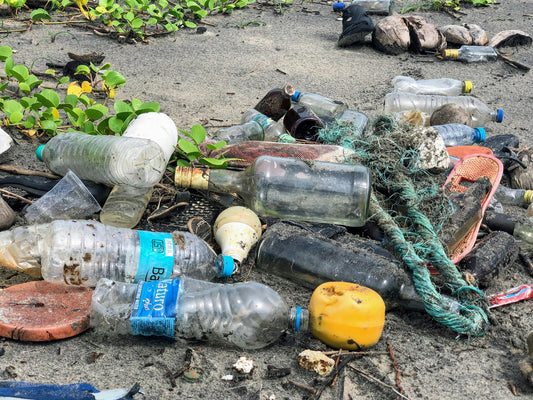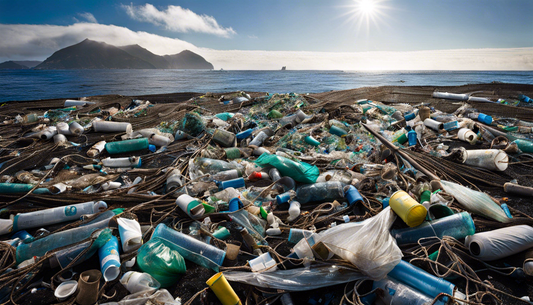Share
According to an analysis by the BBC, burning household rubbish in incinerators to generate electricity has become the dirtiest way the UK produces power. Nearly half of the waste produced in UK homes is now being incinerated, including increasing amounts of plastic.
- Incineration Emissions Rival Coal Power
The analysis found that burning waste produces the same amount of greenhouse gases per unit of energy as coal power, which the UK abandoned last month. Scientists warn that this is disastrous for the climate, with some calling for a ban on new incinerators. The number of incinerators in England has risen from 38 to 52 in the past five years, with waste incinerators now accounting for about 3.1% of the UK's energy.
- A Shift from Green Solution to Emissions Problem
While incinerators were initially seen as a green alternative to landfill, they are now being criticized for their contribution to greenhouse gas emissions. Burning plastic waste, in particular, produces high levels of greenhouse gases. The government's calculations, however, still assume that the same mix of waste is being sent to incinerators as in 2017, potentially underestimating the scale of the issue.
- Incineration's Growing Share in the UK’s Emissions
The UK Climate Change Committee warns that incineration will increasingly contribute to emissions from electricity generation. Dr. Ian Williams, a professor at the University of Southampton, describes burning waste for energy and building more incinerators as disastrous for the climate. Lord Deben, former environment minister and architect of the landfill tax, argues that the UK has more incinerators than needed and shouldn’t approve any more, as they hinder recycling efforts.
- England Continues Incinerator Expansion as Scotland and Wales Halt Plans
Despite growing environmental concerns, new incinerator plants continue to be built in England. Wales and Scotland have introduced bans on new incinerators, with rising calls for similar measures in England and Northern Ireland.
- Carbon Capture Lags in Incinerator Facilities
The UK Climate Change Committee recommends that no new incinerators be built without measures to capture all their carbon emissions. However, only four out of 58 incinerators in the UK currently have approved plans to capture their emissions. Many local authorities are tied into long-term contracts with waste operators, making it challenging to move away from incineration and explore more sustainable options like recycling.
- Long-Term Contracts Pose Barrier to Sustainable Solutions
These contracts have been criticized for financially binding councils and preventing them from exploring alternative waste management options. The Local Government Association expressed concerns about these agreements and the potential fines councils face if they reduce waste sent to incinerators.
- Recycling Stagnates as Incineration Rises
The analysis by the BBC found that recycling rates in England have stalled at around 41% for the past decade, despite a government commitment to recycle 65% of household waste by 2035. The Environmental Services Association contends that burning waste for energy was intended to complement recycling efforts, while stagnant recycling rates reflect a failure to bolster recycling policies.
- Calculating Incinerator Emissions: BBC’s Methodology
To assess emissions per unit of energy from incinerators, the BBC analyzed emissions and power output data, excluding biogenic emissions from organic matter, as per UN climate guidelines. Carbon emissions per unit of energy were calculated by dividing total fossil emissions by energy generated for each site.
- Conclusions: Urgency for Alternative Waste Management Solutions
The analysis underscores the environmental impact of incinerators, highlighting concerns over increased plastic waste incineration and the lack of comprehensive carbon capture efforts. It also stresses the challenges faced by local authorities in moving away from incineration due to restrictive contracts and financial penalties, calling for a reevaluation of waste management policies.
If you want to read more like this, make sure to check out our Blog and follow us on Instagram. If you are interested in truly sustainable products, check out our Shop.
Check out the original source here








